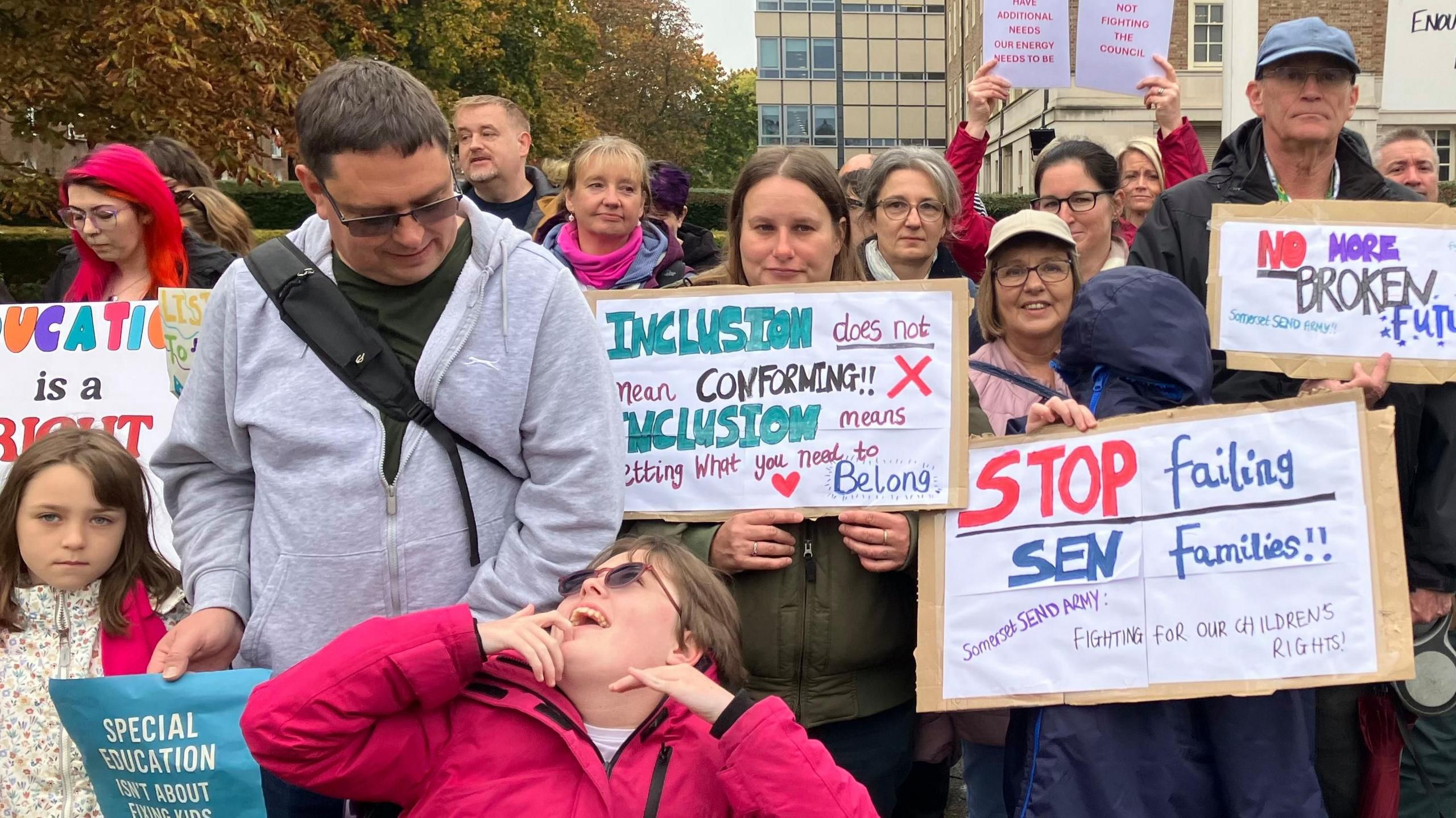Parents of Send children at 'breaking point'

About 50% of children in Gloucestershire have some form of need for special education, according to a council report
- Published
"It's not an exaggeration to say that the council have ruined our children's lives to date, because you shouldn't have two children sitting in their house for two years with nothing at all."
Behind an ordinary looking front door on a Gloucester housing estate live a family who have faced an extraordinary struggle.
Gavin and Michelle have three sons, two of which are neurodiverse and are unable to attend mainstream schools.
The pair say they have battled for years with Gloucestershire County Council to get some form of education provided for their boys, a process which has left them mentally and physically exhausted.
"Our lives are dealing with the children's situation, it's huge," Gavin added.
"One of us can't work, we have two children [at home] which we have to constantly supervise, it's hugely intense.
"But all we care about is what happens to them."
In a statement, councillor Linda Cohen, the cabinet member responsible for Education at Gloucestershire County Council, said the Gloucestershire Local Area SEND Partnership had been "working hard" and making "strong progress" in rolling out its improvement and development plan for special educational needs and disabilities (Send) arrangements.
"All services and agencies in the Local Area Partnership, who provide support for children and young people with additional needs are working hard to put in place the provision that meets the needs of our children and young people," she added.
'Never had a friend'
A lover of art and animals, nine-year-old James is autistic and left mainstream school two years ago.
Seven-year-old Joseph, who his parents describe as being cheeky, witty, funny and sarcastic, is also autistic and lives with Pathological Demand Avoidance.
He has never spent a full day in a classroom.
Gavin said the inability for both to socialise with other children has had a profound impact on their mental health.
"Joseph spends his days in the house, in his room being isolated," he added.
"He's never had a friend, there's so many parts of his life to date that he's missed out on purely because he doesn't have educational provision."
Gavin and Michelle said they had been threatened with fines and prison for their sons' not attending school.
And while both now have Education Health and Care Plans (EHCPs) which set out what support they need from the local authority, Michelle claims neither are receiving the services they are entitled to.
The Gloucester mum said the council had also missed deadlines for sending responses and information, and carried out meetings about the boys behind closed doors which had left the family feeling like they are not being listened to.
"Parents and families are at breaking point," she added.
"It's just not fair… there needs to be action."
Across England, more than 600,000 children have EHCPs, and requests for the plans have increased every year since they were introduced in 2014.
In Gloucestershire last year, the council had a total of 1,625 EHCP requests, of which 26% were processed within the statutory 20-week timeframe, lower than the England average of 46%.
A council report published over the summer stated "around 50%" of children in the county are identified as having a "form of Sen", and there is "no clear indication as to when the demand" will ease.
As a result the current High Needs schools budget, which includes Send provision, is projected to finish the financial year with a £44m overspend.
And if nothing changes, this is forecast to reach a £271m deficit by the end of the decade.
Parents 'traumatised'
Just across the city, parents Karl and Kerry have had a similar experience.
They worked for seven years to get their son, Alexander, a EHCP.
The year eight pupil is waiting for his autism diagnosis, and the family said it was not just the EHCP which took time – but all the evidence needed before an application could be filled out.
Karl said he and his wife had been "traumatised" by the process.
"We were trying to get him into school, we were being threatened with fines," he added.
"But my child can't [go to a mainstream school], and if I drag him to school, it's damaging his mental health, so it's a lot of juggling. It's like what do you do?"
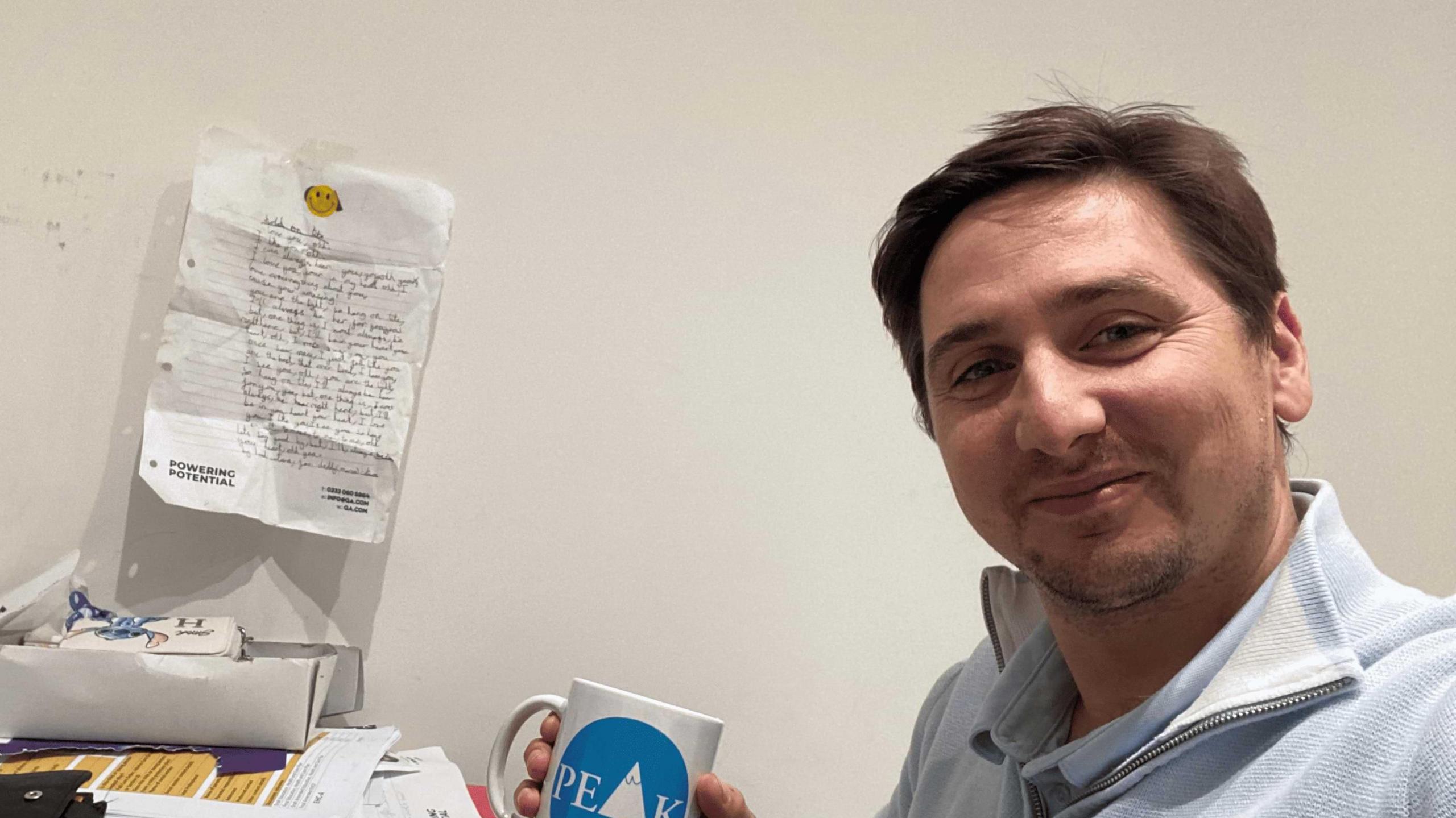
Changes have to be 'child-led', says Marco Cetara
The government is set to publish its Schools White Paper in the coming weeks, which is expected to set out Send reforms.
Some reports suggest EHCPs might be scrapped completely or the process streamlined.
While many accept the system is not working for children, families or local authorities, there is concern that processes which replace it might be equally unfit for purpose.
Marco Cetara is the founder of Gloucestershire-based charity Parenting Empowered Autistic Kids, which offers advice for families navigating neurodiversity.
He said meaningful change would only come when provision was truly child-led.
"If [the white paper] is a rebranding exercise, what we're going to see is a huge negative impact on the awareness and mental health of a lot of families, children and teachers who are already struggling to meet needs," he added.
The Department for Education has been contacted for comment.
Get in touch
Tell us which stories we should cover in Gloucestershire
Follow BBC Gloucestershire on Facebook, external, X, external and Instagram, external. Send your story ideas to us on email or via WhatsApp on 0800 313 4630.
- Published14 October

- Published18 September
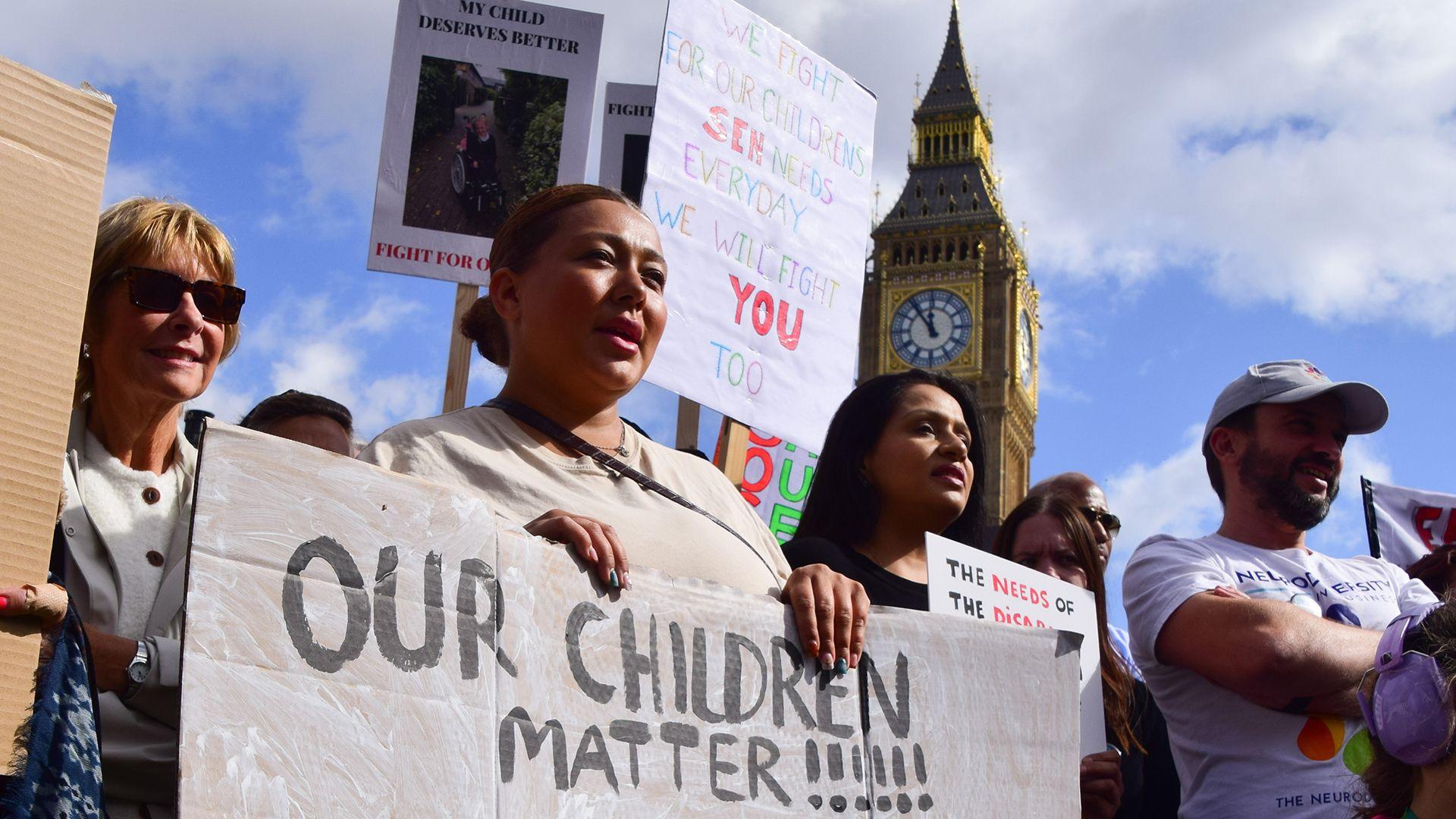
- Published3 July 2024
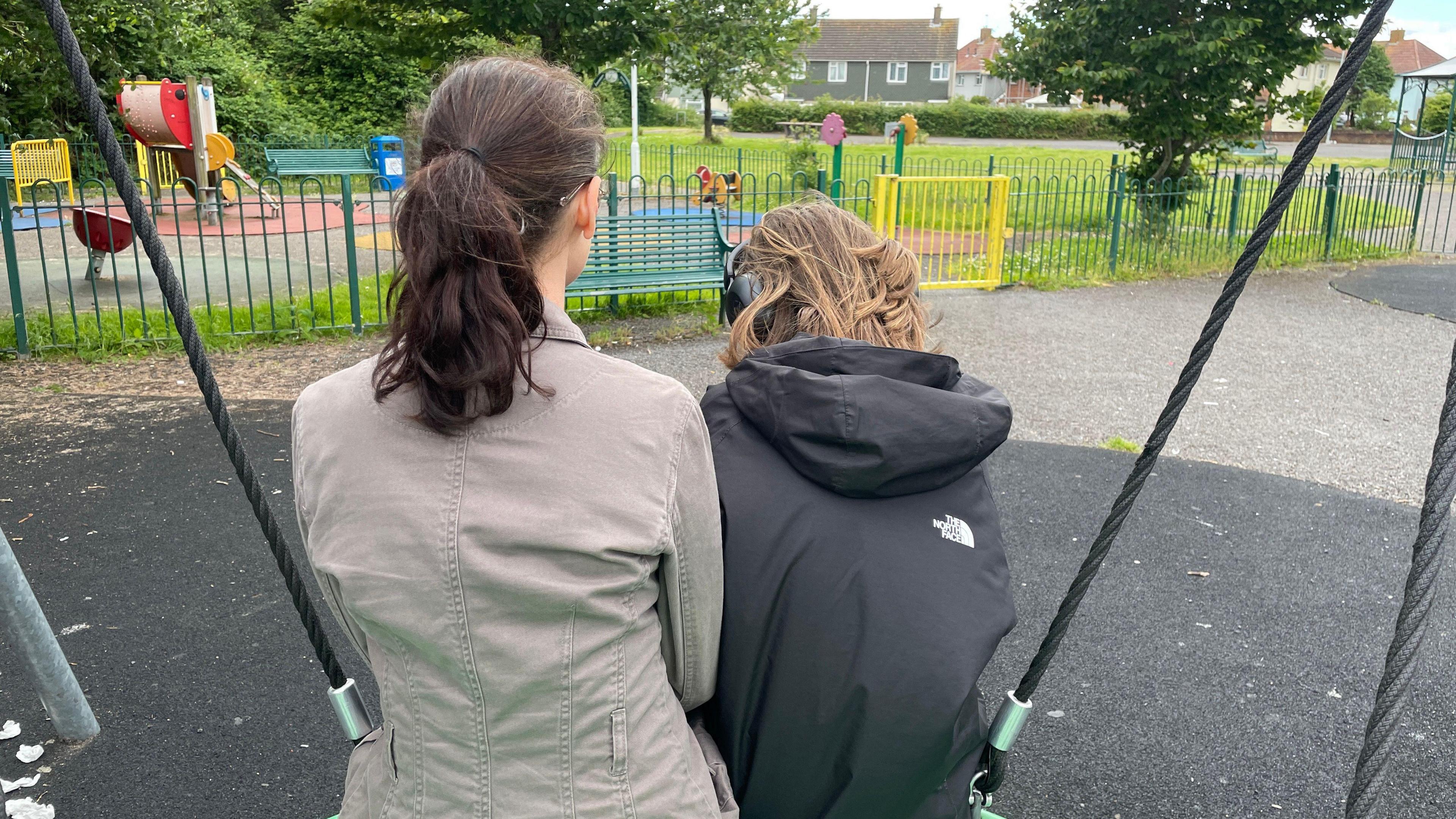
- Published13 October
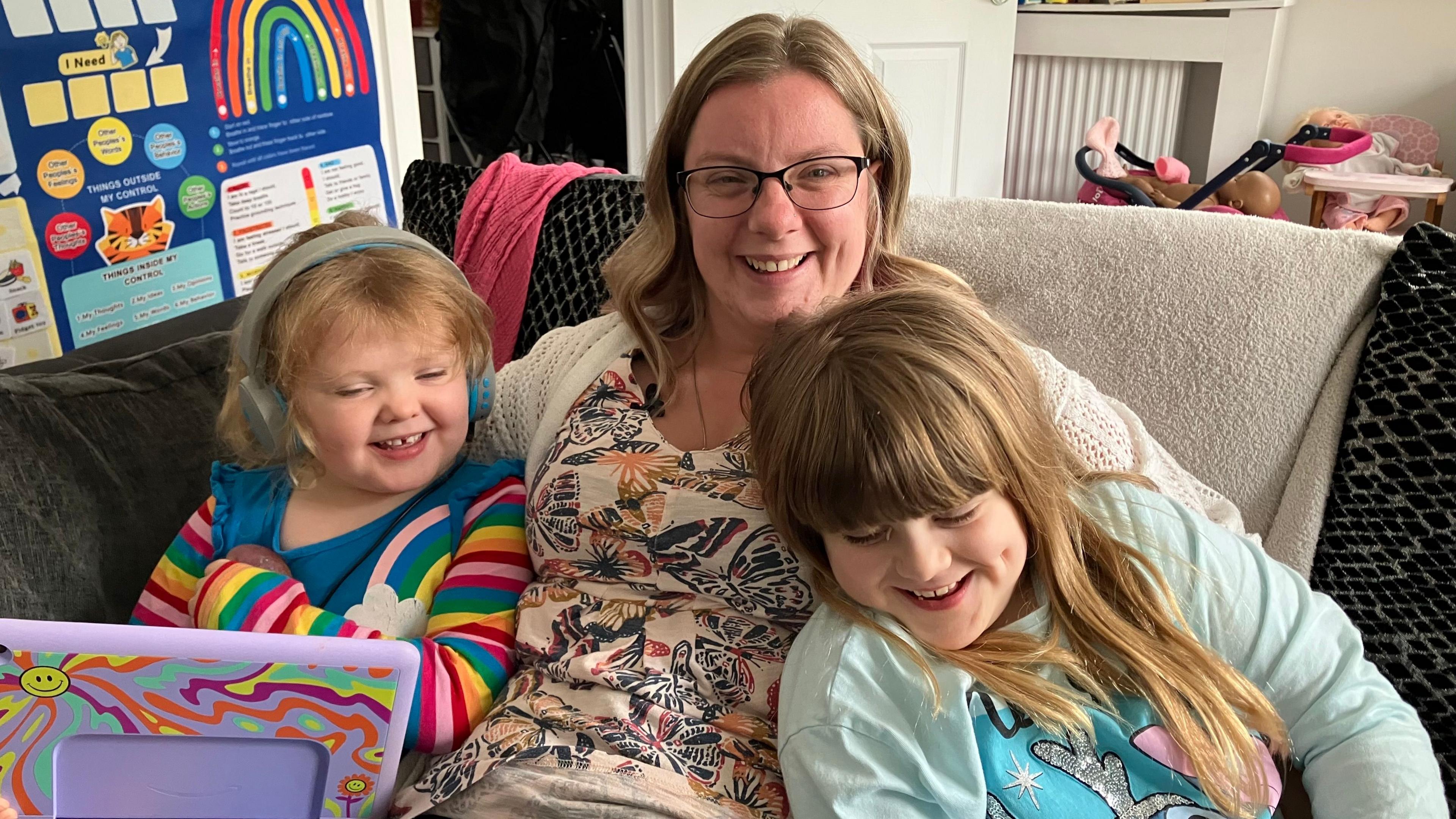
- Published13 October
